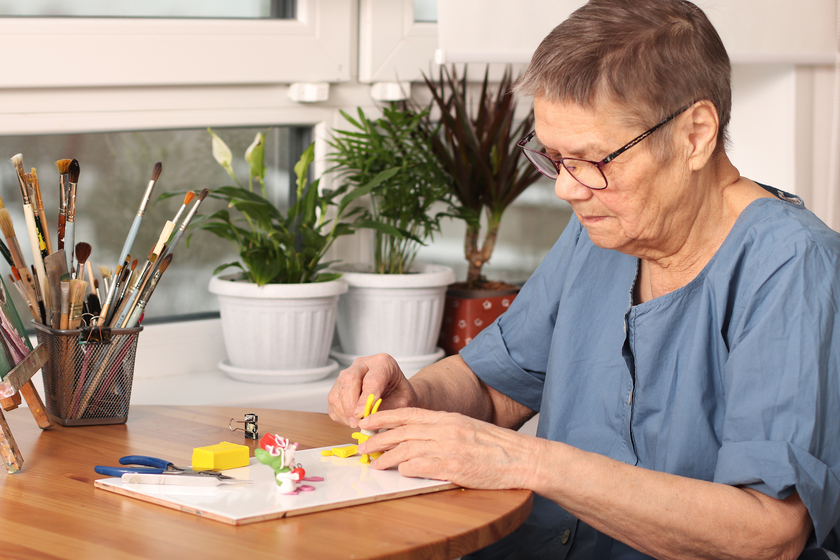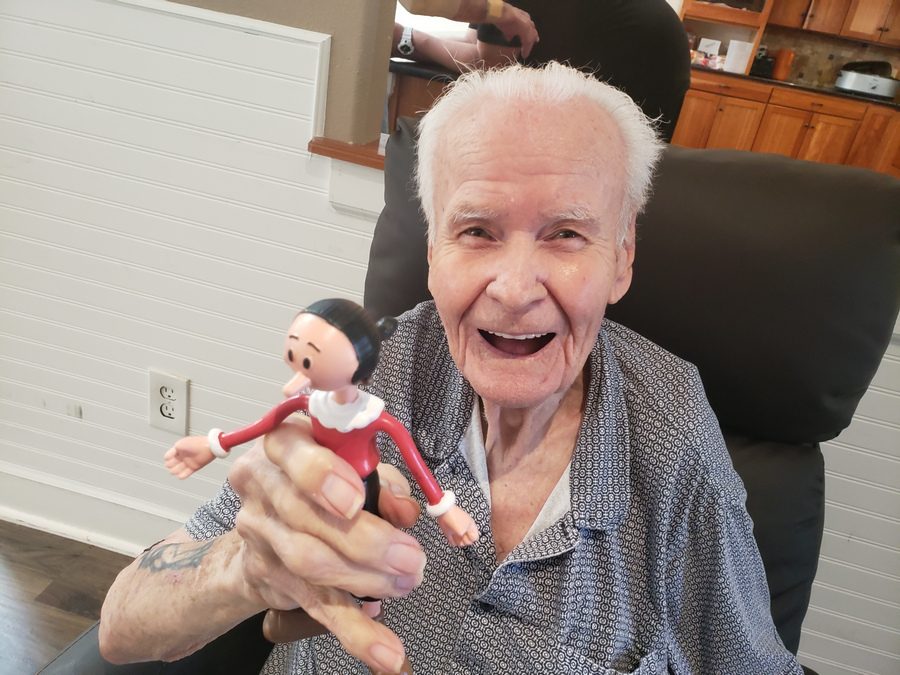The Impact of Personalized Memory Care on Mental Wellness
Wiki Article
Everything About Memory Care Services: Why Little Memory Treatment Houses Are a Wonderful Option
Memory treatment solutions play a crucial function in sustaining individuals with Alzheimer's and mental deterioration. Small memory treatment homes attract attention for their individualized technique and intimate setting. With lower staff-to-resident ratios, these homes foster more powerful links and customized treatment. Locals gain from enhanced social interactions and a safe environment. As families check out choices, recognizing the unique advantages of small memory care homes becomes important. What factors should be thought about when picking the ideal home?Comprehending Memory Treatment Solutions
While many may recognize with general elderly treatment options, comprehending memory care services is essential for family members facing the obstacles of cognitive decrease. Memory treatment especially caters to people with conditions such as Alzheimer's disease and other forms of mental deterioration. These solutions give a structured environment that focuses on improving the quality of life for homeowners through specialized treatment and support.Memory care facilities are created to ensure safety and security and safety, typically featuring safeguarded settings to protect against roaming. Educated team member are available all the time to assist with everyday activities, drug management, and personal treatment. Additionally, memory treatment programs commonly include cognitive stimulation activities, tailored to involve locals and promote mental wellness. Households can profit from recognizing these solutions, as they enable notified decisions concerning their liked ones' treatment, making sure that their certain requirements and preferences are addressed in a thoughtful and encouraging manner.The Benefits of Little Memory Treatment Homes
Small memory treatment homes use distinct advantages that can considerably enhance the quality of life for residents with cognitive disabilities. One considerable benefit is the intimate environment, which permits individualized communications among team and locals. This smaller sized setting cultivates significant partnerships, decreasing feelings of seclusion and stress and anxiety commonly experienced by individuals with memory issues.Additionally, the lower staff-to-resident ratio in tiny memory treatment homes enables caretakers to give even more attentive supervision and assistance. This strategy not just enhances safety but additionally advertises a complacency for the residents.Moreover, little memory care homes can adapt swiftly to the distinct needs and preferences of each resident, enabling a much more homey ambience. Such an environment can urge social involvement and participation in tasks, inevitably improving the daily experiences of those coping with cognitive disabilities.Personalized Treatment Program for Locals
Personalized care strategies are crucial in memory care homes, as they provide to the unique demands and preferences of each resident. These plans begin with detailed analyses conducted by experienced experts, who review cognitive capabilities, clinical history, and individual passions. This tailored approach warranties that care is not only reliable but likewise considerate of each person's dignity and autonomy.Moreover, personalized treatment strategies are flexible, enabling adjustments as residents' requirements evolve in time. This flexibility promotes a complacency and familiarity, which is crucial for people dealing with memory obstacles. Caretakers are trained to execute these plans constantly, providing support that straightens with the residents' routines and preferences.Ultimately, individualized treatment strategies enhance the lifestyle for residents by promoting involvement, well-being, and self-reliance, making them an essential facet of memory care solutions in little memory care homes.Developing a Home-Like Environment
Producing a home-like environment is essential for fostering comfort and knowledge in memory treatment setups, as it considerably impacts locals' emotional wellness. Little memory care homes commonly prioritize personalized touches, such as cozy color schemes, family photos, and familiar furniture setups, which aid residents really feel much more secure. Integrating components similar to a conventional home, like comfy living areas and public locations, urges a sense of belonging.Moreover, utilizing all-natural light and exterior rooms can boost the atmosphere, promoting relaxation and harmony. Staff participants play a significant duty in maintaining this environment by engaging with locals in a caring fashion, treating them like household. Routine activities, such as cooking or gardening, can also add to a home-like feeling, offering possibilities for locals to take part in significant experiences. On the whole, creating a supporting environment supports cognitive function and emotional stability, making it a crucial aspect of memory care solutions.
Enhanced Social Interaction and Community
Boosted social communication and community are vital parts of memory care services. By promoting customized social involvement and creating a family-like environment, these solutions promote meaningful connections among locals. Team tasks and events additionally motivate participation, aiding people really feel more included and supported.Individualized Social Interaction
While social interaction is crucial for total health, lots of individuals with memory disabilities commonly struggle to engage meaningfully with others. Individualized social interaction in memory treatment homes addresses this difficulty by developing tailored tasks that accommodate residents' one-of-a-kind interests and capabilities. By focusing on individual preferences, caretakers can foster links that reverberate deeply with each individual. Tasks such as art treatment, music sessions, and assisted discussions advertise cognitive stimulation and emotional expression. Additionally, small group setups urge sociability and allow for even more intimate interactions, boosting feelings of belonging. This approach not only battles feelings personalized memory care of isolation yet likewise equips homeowners to preserve a feeling of identity, eventually adding to boosted psychological health and wellness and top quality of life.Family-like Ambience
In a memory treatment setting, promoting a family-like ambience greatly improves social communication and develops a feeling of community among locals. Smaller sized memory care homes typically prioritize intimate environments, enabling citizens to form closer links with one another and team members. This nurturing environment promotes trust fund, which is essential for individuals with memory impairments. Citizens are most likely to engage in discussions and share experiences, developing a helpful network that minimizes feelings of solitude. The familiarity of common rooms and regimens adds to a sense of belonging, even more urging social interaction (personalized memory care). In such setups, emotional bonds flourish, causing improved general wellness and a better of life for locals as they navigate their everyday experiences togetherGroup Activities and Occasions

Security and Protection Features in Tiny Homes
Several tiny homes made for memory treatment integrate necessary safety and security and safety and security attributes to guarantee the health of residents. These homes typically make use of protected entry and leave factors to stop roaming, a common concern amongst people with memory impairments. In addition, monitoring systems and alarm system mechanisms boost monitoring, making certain that team can quickly react to any type of uncommon activities.Interior layouts are customized for safety, with decreased threats such as sharp edges and clutter-free paths. Handrails and non-slip flooring are generally installed to decrease the threat of falls. Staff members are learnt emergency situation methods, guaranteeing they are planned for various situations.Moreover, individualized care plans might consist of evaluation of individual safety needs, providing customized options for each resident. On the whole, these safety and security and safety functions create a nurturing environment where citizens can thrive while preserving their dignity and independence.Exactly how to Choose the Right Memory Care Home
How can families ensure they select the most appropriate memory care home for their liked ones? The decision calls for careful consideration of numerous aspects. Family members should evaluate the center's team credentials and training, making sure that caregivers are experienced in managing memory-related problems. Next, it's crucial to analyze the home's setting, concentrating on safety and security functions and whether it promotes a sense of community and belonging. Visiting the facility can provide understanding right into day-to-day tasks and the social atmosphere, which are important for mental stimulation and emotional health. Furthermore, family members ought to inquire regarding the treatment strategies provided, ensuring they are tailored to private needs. Finally, thinking about the home's area and access for household visits can contribute to a smoother shift. By attending to these elements, family members can make an informed decision that prioritizes their enjoyed one's convenience and top quality of life in a memory care setting.Frequently Asked Questions
What Certifications Should Personnel Members in Memory Care Houses Have?
Team members in memory treatment homes need to have appropriate qualifications, experience in dementia care, solid interaction skills, and empathy. Recurring training in behavior management and restorative treatments enhances their capability to support residents efficiently.How Do Memory Treatment Services Differ From Traditional Assisted Living?
Memory care solutions focus particularly on people with memory problems, providing specific assistance and structured atmospheres. On the other hand, traditional assisted living provides basic support with day-to-day activities, lacking the tailored technique required for those with cognitive obstacles.What Kinds of Activities Are Supplied in Memory Treatment Homes?
Memory treatment homes generally use a variety of activities designed to involve homeowners. Usual alternatives include art therapy, music sessions, cognitive games, physical workouts, horticulture, and get-togethers, all focused on improving wellness and cognitive feature.Can Citizens Bring Their Own Items to Memory Care Homes?
Residents can typically bring their very own possessions to memory treatment homes, enabling them to customize their living room - personalized memory care. This practice helps create an acquainted environment, advertising comfort and a sense of identity for the individuals
Just How Are Member Of The Family Involved in the Care Process?
Relative play a crucial role in the treatment procedure, usually taking part in decision-making, participating in care conferences, and offering emotional support. Their involvement fosters a joint environment, boosting the homeowner's overall wellness and high quality of life. While several might be familiar with basic senior care options, understanding memory care solutions is necessary for households dealing with the obstacles of cognitive decrease. These services provide a structured environment that concentrates on enhancing the high quality of life for residents with specialized treatment and support.Memory treatment centers are designed to guarantee safety and security and safety and security, often featuring protected atmospheres to prevent wandering. Individualized treatment plans are crucial in memory care homes, as they cater to the distinct demands and preferences of each citizen. Staff members in memory treatment homes ought to possess relevant accreditations, experience in dementia care, solid communication abilities, and compassion. Memory treatment services concentrate especially on individuals with memory impairments, supplying specialized support and structured atmospheres.Report this wiki page